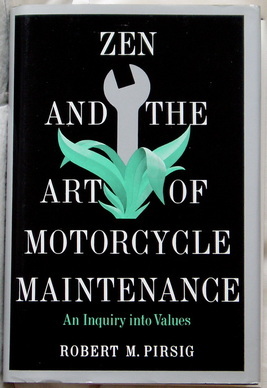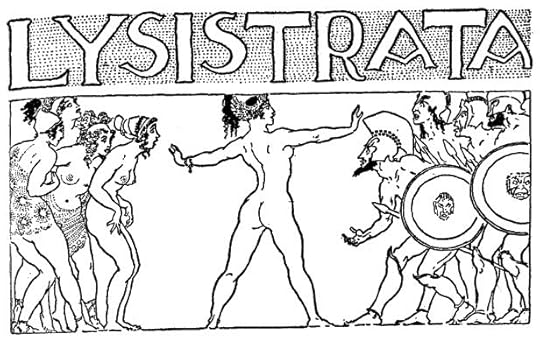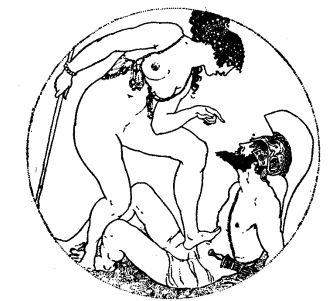Lawrence R. Spencer's Blog, page 354
June 12, 2018
SENTIENTS BEING
 “Every sentient being is an immortal spiritual being.”
“Every sentient being is an immortal spiritual being.”
~ from the book, Alien Interview ~ Image: https://500px.com/katerina_plotnikova
Image: https://500px.com/katerina_plotnikova
Originally posted 2016-03-09 23:57:03. Republished by Blog Post Promoter
COMPASSION HURTS
 “Compassion hurts.
“Compassion hurts.
When you feel connected to everything, you also feel responsible for everything. And you cannot turn away. Your destiny is bound with the destinies of others.
You must either learn to carry the universe or be crushed by it. You must grow strong enough to love the world, yet empty enough to sit down at the same table with its worst horrors.”
— Andrew Boyd —
Daily Afflictions: The agony of being connected to everything in the universe.
READ THE BOOK: http://www.amazon.com/exec/obidos/ASIN/0393322815/qid=1006662488/ref=sr_11_0_1/104-0097384-0675166
VISIT THE WEBSITE: http://www.dailyafflictions.com/visitvoid.html
Originally posted 2016-06-05 21:24:25. Republished by Blog Post Promoter
June 11, 2018
ONTOLOGICAL CHAUTAUQUAS
 I was interested to read “Zen and the Art of Motorcycle Maintenance” as I spent many years of my life riding motorcycles, and most of my life searching for answers to ontological and spiritual questions.
I was interested to read “Zen and the Art of Motorcycle Maintenance” as I spent many years of my life riding motorcycles, and most of my life searching for answers to ontological and spiritual questions.
The author, Robert M. Pirsig, in first person, tells his real-life adventure of a 17-day journey on his motorcycle from Minnesota to Northern California with two friends and his 8 year old son Chris. The trip is punctuated by numerous philosophical musings and educational diatribes he refers to as “Chautauquas“, a popular method of adult teaching used in rural America during the 1800s.
Robert Pirsig was tested as having an IQ of 170 at the age of 9 years. His prodigious intellect led him to an epiphany that Western academia and science is based on unsubstantiated bullshit. Thereafter his personal philosophical investigations eventually drove him to ask questions and find answers that can only be discovered by exploring ones spiritual self.
The “dialogues” the author has with himself while riding his motorcycle across America are tied together by the story of the narrator’s own past self, who is referred to in the third person as Phaedrus (after Plato’s dialogue). Phaedrus, a teacher of creative and technical writing at a small college, became engrossed in the question of what defines good writing, and what in general defines good, or “Quality”.
The book reviews the subject of Western philosophy, touches on Eastern philosophy, including Zen. The discipline and technical skill of maintaining the motorcycle he is riding is used as an excellent analogue for his explanation of his psychic travels through the barren landscape of soulless Western world, both physically and metaphysically. Eventually, he resolves the question of “what is quality” through a subjective understanding of spiritual essence.
Fortunately, Mr. Pirsig is still living and has resolved his personal quest sufficiently to continue living in human society long enough to write this excellent book.
Originally posted 2016-09-06 14:52:23. Republished by Blog Post Promoter
June 10, 2018
THINK ABOUT IT
June 8, 2018
YOU WILL BE FREE?
From the Introduction of Chapter IV of the book PAN – GOD OF THE WOODS, by Lawrence R. Spencer
“The soul of man can never be enslaved, save by its own infirmities, nor freed save by its very strength and own resolve and constant vision and supreme endeavor!
You will be free? Then, courage, o my brother! O let the soul stand in the open door of life and death and knowledge and desire and see the peaks of thought kindle with sunrise!”
— from “Herakles” by George Cabot Lodge (c. 1873 – 1909), American poet
Originally posted 2012-01-15 19:03:01. Republished by Blog Post Promoter
June 7, 2018
MATH: IT’S A RELIGION
Now you know why so many people think Einstein was some kind of High Priest….
Originally posted 2011-03-10 09:41:19. Republished by Blog Post Promoter
June 6, 2018
LIGHT BULB
Only 2 average human lifetimes ago this was a “light bulb”.

More technology has appeared on Earth since 1,250 AD than all of previous human history combined. Why?
 Read this bestselling book to learn more
Read this bestselling book to learn more
Originally posted 2015-09-19 20:56:34. Republished by Blog Post Promoter
June 5, 2018
WITHHOLD A PIECE FOR PEACE, LADIES

A synopsis of the play “LYSISTRATA” by the Greek poet and play writer, Aristophanes ( 411 B.C.E.)
The Peloponnesian War has been dragging on for eighteen long years, and the beautiful Lysistrata, in common with the other wives of Athens, is heartily tired of the intermittent absence of their warrior husbands. She decides that it is time to bring an end to this situation. The only solution, she concludes, is a boycott to deprive the husbands of their wives’ love.
Lysistrata sets out to enlist the other women in the plan, but finds them somewhat reluctant. One thinks that to so punish their husbands would be punishing themselves; others offer similar excuses. Lysistrata tells them that they are cowards and that the poets’ jibes about women’s frailty are well deserved.
 But she perseveres in her determination, and convinces the women at last that peace surely will come if they all dress, powder and perfume themselves irresistibly, then withhold their favors from their men unless they promise to take steps to end the war forthwith. The wives agree to try the scheme, and, for a start, seize the public funds. The old men of Athens try to burn them out of the treasury, but the embattled women retaliate with pitchers of water upon their heads. The President of the Senate arrives at this juncture, ordering the arrest of “that traitress,” Lysistrata.
But she perseveres in her determination, and convinces the women at last that peace surely will come if they all dress, powder and perfume themselves irresistibly, then withhold their favors from their men unless they promise to take steps to end the war forthwith. The wives agree to try the scheme, and, for a start, seize the public funds. The old men of Athens try to burn them out of the treasury, but the embattled women retaliate with pitchers of water upon their heads. The President of the Senate arrives at this juncture, ordering the arrest of “that traitress,” Lysistrata.
The women win the scuffle that follows, the President admitting defeat; but he asks an explanation for the feminine onslaught upon the treasury. Lysistrata blandly explains their purpose: to save the public money so that the men won’t fight any wars over it. The President protests the absurdity of their fancy that the war is being fought over mere money. Lysistrata assures him that of course it is; that every war is for the sake of money–else why are politicians always manufacturing wars? Merely as an occasion to steal, she says.
Then Lysistrata announces that, from now on, things are going to be different: the men won’t be able to get any money for fighting because the women are going to take over the treasury. And why not? They manage the household finances. But household finances, the President tolerantly explains, are quite different; the public money is necessary for the fighting. To this Lysistrata readily agrees, but adds that the fighting itself is hardly necessary.
The listening women, weary of the argument by this time, seize the President, unclothe him and dress him as a woman. They tell him that they are going to take the state into their own hands, rescue it from the muddling of men, unravel the knots of war just as they straighten out a skein of wool, and unite all nations into a single thread of peace and good will.
But the President persists: war, after all, is the business of men, he says. Nothing of the kind, Lysistrata replies, it is the business of women–for who suffers most in the loss on the battlefields of sons and husbands? To end the debate, the women again seize the official and garb him as a corpse. He retreats in terror.
After a time, the wives of the enemy city of Sparta join in the boycott. The plan is a success: the husbands of both cities surrender to their wives, and, to recapture their love, agree to end the war. Here a male chorus observes that it was a wise philosopher who called women the paradoxical sex: you cannot live with them and you cannot live without them. A female chorus replies that, say what you will and do what you will, the women always have the last word, for theirs is the unanswerable argument. Together the choruses agree that there has been enough of idle quarrels: they urge that the discord cease.
Lysistrata is chosen as intermediary between the Athenian and Spartan envoys for formal termination of the conflict, and she lectures them soundly at the start of their conference. She is a woman, she says, but hopes that she is not without some sense; she reminds them that they are all of the same blood, the same gods and the same language. Why, then, do they kill each other? Why should they not come to terms? She agrees that it may be necessary for animals to fight, but certainly not for men–particularly for Greek men–to fight among themselves while barbarians are looking on.
A Spartan delegate announces that his side is ready to make peace if it gets what it wants, and an Athenian observes that what both the Spartans and Athenians want is to get their wives back again. Lysistrata sees some feasibility in this, but orders that first the former enemies must go off to a feast to repair their friendship. After that, she says, each warrior may take his woman home.
 The warriors try Lysistrata’s program, and at length return as bosom friends. This accomplished, she bids them each take his woman, and all join in a dance of peace as the chorus pleads:A Spartan seconds this idea, proposing further, that they all get drunk–a suggestion not unpleasant to one Athenian who notes that people are surliest when most sober. If there were more drinking bouts among diplomats, he thinks, there would be no war; they would drown their quarrels in wine, have some singing together, and decide that, after all, an enemy could still be a good fellow.
The warriors try Lysistrata’s program, and at length return as bosom friends. This accomplished, she bids them each take his woman, and all join in a dance of peace as the chorus pleads:A Spartan seconds this idea, proposing further, that they all get drunk–a suggestion not unpleasant to one Athenian who notes that people are surliest when most sober. If there were more drinking bouts among diplomats, he thinks, there would be no war; they would drown their quarrels in wine, have some singing together, and decide that, after all, an enemy could still be a good fellow.
“O let us prayTo the gods today
While in peace we eatOur bread and our meat.
That every fieldMay its harvest yield,
O Venus, arrayed in love, restore
The hopes and joys we have lost in the war…
Let the sword be forgotten for evermore.”
Originally posted 2012-01-23 00:18:28. Republished by Blog Post Promoter
June 4, 2018
A FORM OF GENIUS
“Beauty is a form of genius–is higher, indeed, than genius, as it needs no explanation.”
— Oscar Wilde —
Originally posted 2013-03-21 00:25:44. Republished by Blog Post Promoter







